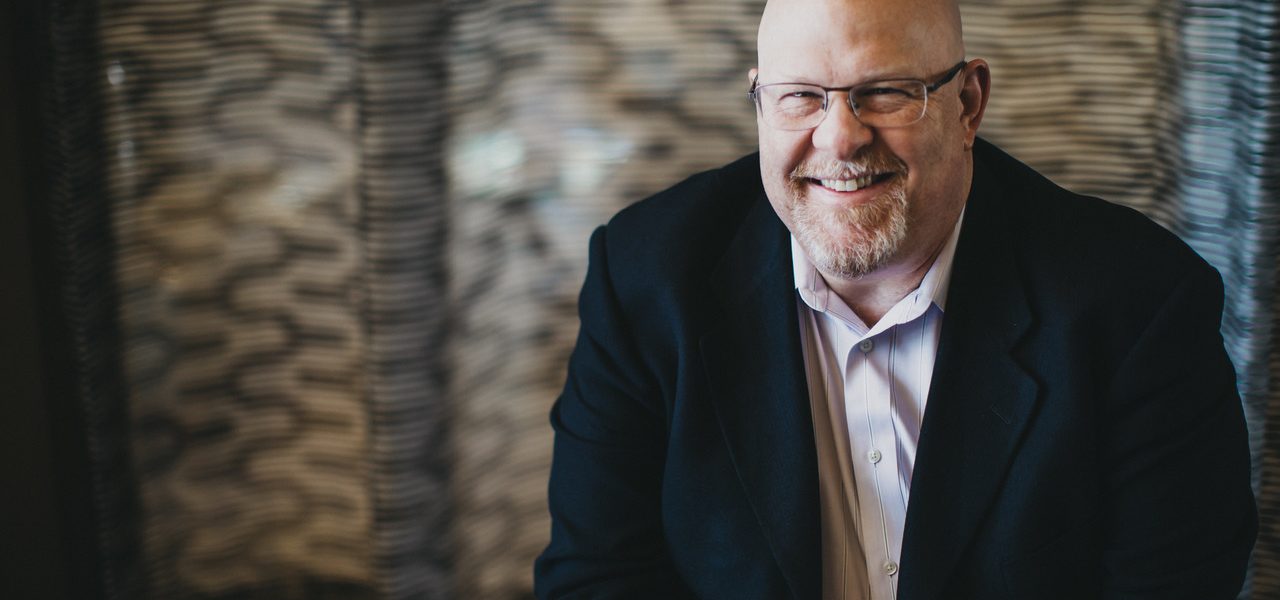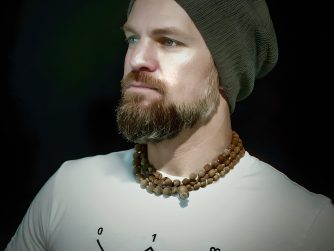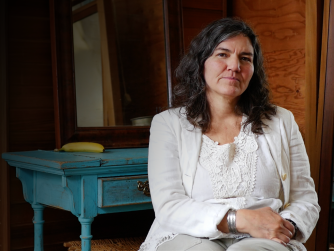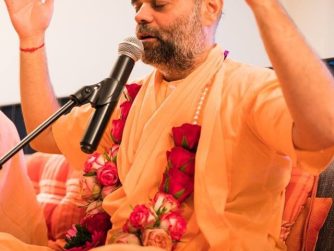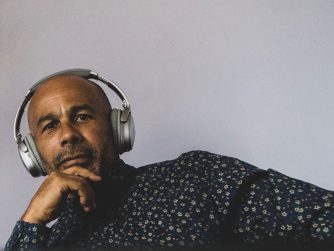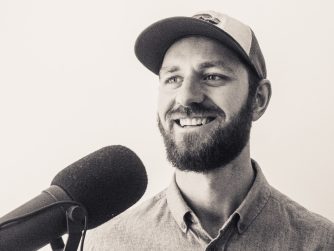If you want to protect yourself from lawsuits, understand more about content creator law or simply learn better business practices for launching your podcast this episode is full of excellent resources.
In this week’s episode of Be On Air, Gordon P. Firemark identifies how to protect ourselves as podcasters and what it takes to run a professional podcast business. We break down media release forms, the power of language in law, regulations in online media as well as the technical side of running multiple shows at once.
Gordon Firemark is a lawyer, coach, show host, and author. He has been co-host of The Entertainment Law Update podcast for over a decade and recently launched a solo show aimed at giving success strategies to creative professionals called More. Better. Faster. You can find his courses and ebook Podcast, Blog & New Media Producer’s Legal Survival Guide on his website linked below.
Get Connected with Gordon Firemark
Free Media Release Form!
Get Legit. Go Pro!
Join the Legit Podcast Pro Facebook Group
Want to talk about your podcast? Connect with K.Lee and Podcast Farm
Book a free strategy session to talk about your podcast:
Join the podcast farmers FB group and grow your show!
[00:54] – Disclaimer
[01:15] – Who is Gordon Firemark?
[02:52] – What to focus on in podcast law?
[05:45] – How you can use a media release form?
[08:20] – When to implement a media release form?
[09:57] – Is it necessary to have disclaimers on your show?
[11:32] – Regulations in the Podcast world
[16:18] – Connection between language and law
[18:45] – Gordon Firemarks’ journey
[21:46] – What it’s like managing two shows?
[25:46] – What you should consider if you’re trying to grow your show?
[28:47] – How to connect with Gordon Firemark?
[00:00:00]Welcome my friends. You’re listening to be on air your companion for launching and growing your own podcast. I’m your host K.Lee Marks. This show is all about the transformational journey of sharing your message through podcasting and entrepreneurship. Learn from diverse experts and guides. As we dive into the heart of podcasting branding and online business and share blueprints to achieve your purpose.
If you haven’t already please subscribe. And if you want to start a podcast or want to grow your show, I invite you to book a free strategy session with me via the link in my show notes or on the website. That’s all for now. I hope you enjoy the show and I’ll see you on the other side,
Everyone real quick. Disclaimer, here, this episode is not meant to substitute professional legal counsel that you get on your own. Gordon has been kind enough to share his thoughts in this episode, but I highly recommend you double check everything with your own counsel or reach out to Gordon himself. Yeah, just wanted to throw that in here. Enjoy the episode. Well, hello everyone. Today, I am really pleased to be bringing on the podcast. Lawyer, Gordon Firemark has practiced media and entertainment law since 1992. He’s often referred to as The Podcast Lawyer and is himself a podcaster producing and hosting the entertainment law update podcasts since 2009.
And the More. Better. Faster. Podcast which offers insights and advice to creative professionals and businesses who want to achieve More. Better. Faster. Gordon is the author of the podcast blog and new media producers, legal survival guide, and creator of several online courses for creatives, really grateful for your time, coming on the show, Gordon and sharing your wisdom and advice with my audience and, you know, without further ado, how has your 2021 getting off to, well, first off K.Lee, thanks for having me on the show.
I love doing this kind of thing. I love sharing my knowledge and helping people and, uh, Uh, I’ve set a goal for 2021, of appearing as a guest on at least 75 podcasts and live streams and things like that. That’s one, one and a half a week, roughly. And, uh, so it’s off to a great start. Thank you for having me.
That’s incredible. I love that. I love setting goals. I think that’s a great tip too, is not only does it help other people get behind your cause and your, and your goal, but it helps set a smart goal and a measurable outcome for yourself. So I think that’s actually a really great strategy in general. It’s really all in service of my mission and objective to just have an impact and to help, you know, for me, it’s 10,000 podcasters.
I want to help in the next couple of years and to do that. Got to get exposed, got to get them to know [00:03:00] you and, uh, spread the word and pay it forward. So that’s what I’m all about. Absolutely. Yeah. So you, you help podcasters specifically or, uh, you know, other media creators, other content creators, um, understand the legal world.
What would you say? You know, just jumping right in. I think the question on any new podcasters mind, and even maybe some veteran podcasters is like, what should I really be focusing on? When it comes to protecting myself, protecting my guests, having some control over the content I create. Could you kind of help build a map of podcast law?
Yeah, well, I mean, first off, let me say the key focus for every podcast or should be on making great content that provides value, solves a problem for the listener, whatever that is, as long as it’s not at the expense of somebody else’s reputation or personality rights, or other rights like copyright and trademark.
And I think that the most common thing that podcasters need to be mindful of is, uh, intellectual property rights, copyright you can’t just use stuff created by others. When you create something original and record it or write it down, you own a copyright from that incident. And that is true of everybody else who creates stuff.
So if you want to incorporate a piece of music or read a poem or, or big quotes from a book or movies or something like that, you are running the risk that you’re infringing on people’s copyrights. So, uh, I’d say that’s sort of number one is understand. That, that area of law and that area of property ownership and be respectful of it, both your own material and others.
Absolutely. Yeah, that’s a, that’s a great point. So I’m hearing not only just like not using people’s songs in your podcasts and stuff like that, but even reading from books even, um, uh, other more subtle forms of, of borrowing intellectual property or, or copywritten material is something that podcasts are, should be aware of that they’re doing and take proper procedure,
to get proper clearance or something. Is that right? Yeah. Get permission if you can, and sometimes it’s hard. I mean, with, with music, it’s especially hard because there’s multiple copyright owners and multiple, you know, stakeholders that have to be considered. But, um, you know, if you’re doing. If you’re doing a book review and you want to read a very, a relatively short passage from it, that’s probably okay.
There’s a, there’s a principle under American first amendment law called fair use. That is sort of a defense to a claim of copyright infringements actually in the copyright law. But it’s a sort of complicated four factor analysis you have to go through. And, and each case is it has to stand on its own merits and you can’t.
There are no rules of thumb, but as I’ve sort of general idea, you know, if you’re, if you’re reviewing a book or critiquing something and you want to read from it so that you give context to your audience, that’s probably going to be okay. Right. Um, uh, less so with music when you play the whole song, you know, the smaller clip is yeah.
Yeah, totally, totally. So, um, when it comes to, you know, [00:06:00] I think that when podcasters think about. Anything regarding law with their podcast that maybe the first thing that comes up is this idea of like a media release or that, that, uh, that first form that we give to our guests to basically give us permission to use the conversation in a way that serves all of us.
As well as possible. Could you talk a little bit about what is, and I know that you offer maybe, um, some, some template like this. Could you talk a little bit about this podcast release? Yeah. Thank you for bringing it up. K.Lee. The, this is my crusade really is, uh, every podcast or who has guests on their show or co-hosts or whatever.
Anybody who comes on the show should sign a document that gives the podcast or permission to record their voice permission to edit and, produce and distribute the content that uses that material and that permission should probably be irrevocable and they should acknowledge that they’re not going to get paid unless they are going to get paid of course. And, uh, and they should promise not to sue and, you know, they’re releasing the podcaster for any liability that relates to the show. So I do offer a free podcast guest release for podcast hosts to use when they bring on guests, it’s at podcast release.com. And, uh, you can get that and download and end up on my mailing list and I’ll never leave you alone, but you can always opt out afterwards. Um, but that’s part of my, my thing about helping podcasters. I don’t want to see podcasters encounter the situation where a disgruntled former guest comes along and makes trouble. Asked you to take down an episode, which, you know, you, you still can if you want to, but wouldn’t, wouldn’t you rather that be your choice rather than the guests choice?
Yeah.
Um, uh, I had a situation that came up, um, a few years ago when I sort of began this crusade where a journalist podcaster had done a show on a particular subject matter with a guest who was very. Well-respected on one side of the issue. And then later when the host did a, another episode featuring the other side of the issue, that first guest came instead of, Hey, wait, take it down.
I don’t want that. Um, yeah, I don’t want any reference to me on your, on your show or your podcast or anything else. And now this journalist felt like, well, wait, I’m trying to present a balanced. Uh, view of the, of the issue. And, uh, it turned into a lawsuit and it turned into a, um, a costly settlement for my client, the podcast host.
So had there been a release in place? None of that would have happened. So what would you recommend to a podcast host who has done, let’s say, you know, anywhere between 20 and. They’ve done a certain amount of episodes and they have not procured this release form. How could they retroactively get this taken care of and, and, you know, secure those episodes?
Yeah. That’s a tricky, uh, social political kind of a thing to have to navigate. And most of the time, I would say if you haven’t had any problems and it’s been a couple of years, Don’t [00:09:00] go, don’t try to go back in time and fix those things. Just, you know, change your practices and move forward so that, um, you know, you, you have the protection in place.
If there’s somebody that you think is going to be a problem or. Or whatever, maybe you go and reach back to them and have a conversation about it and just say, Hey, I want to make sure that I’m, you know, that I’m on solid ground here. So would you mind signing something just to give me continuing permission to use this episode?
That’s an opportunity to open up a dialogue and maybe make an editor too, if they don’t like, you know, whatever. Um, um, but you run the risk of them saying, you know, actually I’d lie. I’d rather you take it down. Right. And then you’ve got a decision to make. So, uh, and certainly if you’re, if you’re close and friends with some people, then go back and get them to sign.
Just in case, but for people who are, you know, really just a guest on your show, um, I think the. Even though I crusade on this point, I don’t know that it’s worth going back and stirring the pot, right? Yeah. That’s what I’m hearing is, uh, to use discretion on CA need case by case basis as needed go ahead and risk assessment.
Right. Okay. That makes sense. That makes sense. Um, so kind of transitioning to, to another topic or point on this. Uh, on just how to be protected as podcasters, for instance, with this one, do we need to have disclaimers, uh, before episodes when it’s medical stuff or maybe, you know, what’s, the term for, you know, sub substances that are classified as illegal.
If there’s conversations about that or law, do it, should there be a disclaimer that this is not legal advice is not medical advice, et cetera. You know, I, I would say it’s not a bad idea to do disclaimers. Surely if your show is the kind of thing that gives, uh, as you said, healthcare care or health supplement kind of advice or legal advice, although this kind of a thing is, you know, general information.
I don’t think anybody’s going to take they’re legal advice strictly from a podcast. Well, if they do, they sort of deserve what they get, you get what you pay for. Right. Um, but, uh, in the medic, well, in all these fields, medical, and especially with, um, financial services kinds of stuff, if a person is, um, giving stock tips or financial advice, it probably does make, just make sense to just, you know, say something along the lines of, “Hey, this information is for your educational use and you shouldn’t rely on it without doing your own independent investigation and consulting with your professionals.” Yeah, I think it makes sense, but it doesn’t have to be heavy handed or, you know, a big separate announcer voice, those kinds of things. You have to sign this waiver before listening to this episode.
Right. Yeah, no, that totally makes sense. So, what about regulation in the podcast world? Is there, you know, with radio there’s, there’s a whole, there’s all these hoops and all these regulations and organizations with podcasting. Is there anything like that?
Well, there’s some similarities. Uh, you know, I say it’s a different medium and the [00:12:00] rules are different. And usually I say that in the context of radio hosts telling me, well, I’m doing a podcast now. I’ve never used a release for my guests on the radio. I said, yeah, it’s a different medium. It’s, it’s permanent, not ephemeral, you know, broadcast happens. And then it goes away. Most of the regulations in the broadcasting industry relate to the license to broadcast on the airwaves, which is regulated by the Federal Communications Commission. The internet and podcasting really is not regulated in that way, where we do encounter regulations, obviously the laws relating to copyrights and trademarks, infringements, and rights of privacy and defamation and all those sort of personal rights that come up, are a factor.
But the regulation that comes into play is when, podcasters, who I would say. Are influencers or at least potential influencers, start to promote a product or a service or a person, and they’re getting paid somehow or compensated somehow There are rules that require disclosure of the fact that there’s a financial relationship.
So if you do a show where you talk about products, that the companies send you to review and unbox or whatever, and they give them to you for free, you need to say something. Um, and I think it’s just good advice to do that. Anyway, your, your listeners want to know, Hey, did that person get compensated for that rave review they gave, or is this really an objective review, right? Yeah. So, and if your affiliate linking, if you’re saying, “Hey, get the book on Amazon, we’ve got a link on our website.” You got to go one step further and say, “it’s an affiliate link. We’re going to get paid when you use it.
It’s not going to cost you anything more, but we’re really grateful for the support” or something like that. And next to the link on the website, it also needs to be disclosed. That’s sort of the big regulation in the area. Again, there are some specialized fields like financial services, where there may be regulations that affect what the members of the industry are allowed to do, but, no, generally, uh, anything goes the first amendment, fortunately here in the U S we’ve got powerful free speech in the constitution and it’s, uh, a counterpoint to a lot of these kinds of concerns and regulations.
I love that. And I think that’s part of the power of this format is the, just the use of that free speech and the ability for every person to turn on their microphone and broadcast across the planet is such an immense power right now that we haven’t really had for many years. It’s so new. Um, so it’s, it seems like it’s a great time since those regulations all seem fairly reasonable, not too overbearing, pretty easy to still have a lot of.
Freedom within, you know, content and, and, and each podcast shows mission. So I really like to think of podcasting as the modern day equivalent to the soapbox and in the town square. You know, you have this tool, this mechanism to get up and stand up and say what you mean and say what you think and stimulate and foster that, that open discussion that is really the root of democracy.
It’s been abused [00:15:00] over the years. It’s been manipulated and twisted into things we don’t always recognize or care for, but it’s still there. And very much like the, you know, owning a printing press, you can print flyers on pretty much any subject you want, as long as you stay out of, you know, pornography and obscenity and things like that.
There are regulations in those areas, but, um, The only other regulation, just, I just thought of it is, is really not a government regulation, but an industry sort of self-regulation things like Apple podcasts requiring you to hit the explicit tag or YouTube requiring that you indicate whether materials made before children or not.
Those kinds of things. Again, designed to protect the companies from claims that they’re violating, you know, the child online privacy protection and those kinds of things. Um, but that’s industry self-regulation much more than government.
Absolutely. Yeah. Yeah. That’s a great point. So even if you say one or two curse words in an episode it’s required to check the explicit box, is that right?
My understanding is that Apple is pretty rigid about that, that, you know, even one swear word makes your episode, uh, explicit and one episode makes your whole podcast explicit. And, um, my understanding is that. In some countries, if it has the explicit tag, it won’t be accessible.
Okay. Very interesting. Yeah It’s good to know that, um, for, for your editor, for your podcast editor, get cutting out those curse words, if you’re worried about that creative blueprint. Yeah, exactly. Um, you know, maybe as a, uh, quick topic tangent. I’m I’m curious about, because we’re talking about free speech and law, and I don’t know hardly anything about law, but it seems that language and law are so tightly connected and there’s this immense power in words and language.
And I’m just kind of want to pick your brain personally on that. Um, it does even me saying that, does that bring up any thoughts for you? You know, it’s interesting that you bring it up because a years ago I had this flash of a thought that what lawyers really do, the lawyers that work with contracts and interpreting and writing the law or whatever, we’re really sort of the equivalent of, of hackers hacking the code that.
Is, you know, behind the fabric of society and,, you know, maybe I’m elevating things a little, a little too much, but, or feeding my own ego. But,yeah, I mean, I really do think we’re, we’re manipulating a lot to achieve a particular goal. And, I think in the last few years we’ve really seen that language is extraordinarily powerful and the ability to manipulate audience, the public.
That’s why I say we’re influencers. We have the soap box. We can say what we will, what we think. And we can, we can shape people’s perceptions of things, I think that’s why it’s so incumbent on us to be what’s the word I’m looking for? Conscientiously, scrupulously, honest and transparent, and [00:18:00] candid with our audiences.
It’s, it’s awfully easy to present your point of view and not be balanced and not acknowledge others and those kinds of things. And there’s a place for that. But, uh, I also think that we should, you know, be careful that we’re being truthful. I really appreciate you saying that. And I agree with that.
Um,on a previous episode with Patrick McAndrew, we spoke about digital wellness and just our responsibility as media creators to remind people about the addictive nature of the platform we’re on. If we’re on social media, et cetera, as influencers, as social media creators, just kind of reminding people to put down the phone every now and then, and get some water and, you know, like what you’re saying to be truthful, to be aware of the power of the words, the words can incite people to, take action and that is a powerful and dangerous thing at the same time. So. Yeah, I think that’s so, it’s so interesting. Um, I’d love to learn a little bit about your podcast journey and like how you, you said you started back in 2009. How did you get into podcasting and what is your experience been like?
I’ll tell you. I, really discovered podcasts. Uh, when I was, I think I’d probably listen to something at some point, but I was invited to become a guest expert on a show, a fellow named Brian, who did a show about digital video or video production generally. And he had his listeners asking questions about the law stuff.
So he reached out to me and said, Hey, come on my show and answer some questions. And that became a regular recurring thing for a few months. And then he said, let’s do a show. That’s just about the law stuff. And so we did the law podcasting podcast where he was the host and producer, and I just showed up every couple of weeks and did my Q&A.
Well, after a bit of time, he, took a new job and had to shift his focus and we weren’t able to do that show anymore. But by then I was sort of hooked and I had been a, a sound guy in live theater and in television, my production background, uh, before I went to law school. So I had some gear and I had a little bit of know-how.
And I’m a geek. I like to play with toys and computers and things. So I hooked up a microphone and got myself set up and learn how to do a podcast. And then I went looking for a cohost cause I had been listening to a guy named Leo LaPorte who, had been a host, a radio guy, and then he went, I had a host on, tech TV cable network for awhile.
And, uh, I was a fan. So when he left tech TV and started his podcast empire, he’s got like 20 shows on his network. Now, um, I sort of was following his lead in his format for a show. And, uh, so I went looking for a co-host. I went on Twitter and I asked all the lawyers, Hey, who would be right for this kind of a show?
And they, and. Two one, everybody pointed to this gal, Tamera I wanted a woman. I wanted someone in another, in another state. So we weren’t direct competitors. And they said, Oh, you’ve got to talk to Tamera Bennett. So she and I have been co-hosting entertainment law update now since April of 2009, going on 13 years, this spring.
And, um, We do a monthly roundup [00:21:00] of entertainment, law news cases, and analysis. And we have a little fun with it. It’s pretty loose and casual, but we’ve got a big, well big for the legal community listener base. I would say that, um, probably a good majority of the folks out there who practice entertainment law listen, or have listened to our show and gotten some bit of information from it.
So, so that’s our, my flagship show. And then about a year and a half ago, I started a show called more, better, faster to really just help creative folks and business owners, entrepreneurs. With the mindset stuff, you know, getting, motivated and staying on task and how to accomplish more, better, faster.
That’s really the message there. And I just, that’s just me having a good time and, and sharing my thoughts and, I do that on a weekly basis. We publish on Tuesdays. Wow. That’s awesome. And, so it sounds like you. You love podcasting obviously. And you know, it’s, it can’t be, it can’t be easy to do two shows.
I mean, it’s hard enough to do one. How do you, how do you, do you have your editing outsourced or do you do that? Or how do you, how do you manage your production?
Thank you for asking, um, on entertainment law update. Part of it is.There’s a lot of preparation that goes into it. We record live to drive.
So what, what we say into the microphone, once we start is what comes out on the other end. We don’t do any, any post-production to speak at, well, I shouldn’t say that we don’t do any editing to speak up. So I have a team of volunteer interns, law students, and young lawyers. One’s older than me, but mostly younger lawyers who, um, who help us identify the stories and write up summaries of the stories.
And they, and I have a meeting every Sunday evening for about a half an hour, just to go over what stories have come up this week. And what’s, what’s really news and what’s not, and you know what we’re going to cover and how we sort of shape the show. And then, on the, the week that we actually run record the episode, they write the summaries and we create a rundown document Tamera and I then review that the night before we record figure out our own sort of the way we’re going to spin things and whatever. And then we sit down and we record and I use a Roadcaster pro now, but for years I’ve used sound Q software and stuff like that to just allow me to, to press record, play the music, the intro, do the, do the show, play the outro and the show upload the file and we’re done.
I use, um, I use auphonic.com to do some audio sweetening and noise reduction and stuff like that, just to clean it up. And I’ve heard good things about that. Yeah. It’s great. And super low priced. I mean, it’s, it’s a fantastic tool. I think they even have a free level. And from there it actually exports the file directly to Libsyn or, or, uh, blueberry or pod bean or Buzzsprout, or, you know, all the services.
And I just discovered and set up, that it. Interfaces with a transcribed, a transcription service. So, and that will also output the transcript to a [00:24:00] particular hostings, you know, I use an Amazon site, for that web storage site. And that way I can publish the transcript along with the episode right there.
So it’s, it’s very automated and that’s made it much easier for a lawyer where he was busy with, you know, expensive hourly rates to, to justify doing a show. Yeah, so it sounds like you’re doing it like a radio show live and that cuts down on your editing costs and all that because you, you, you trigger the intro music and all that, and the show all live.
That’s so awesome. And that’s, that’s informed by my background in, in radio and TV production myself, you know, I I’m not, everybody would sort of have the thought process of how to do that quite so, you know, I say effectively, some people may disagree, but we get pretty good sound quality and pretty good production values.
And, I think we provide a lot of value, and there’s that more, better, faster is just me talking. So I sit down Tuesday morning, sort of my first item of the day, is to record this episode. And usually I just do an outline the night before and riff on the subject. And it’s usually about 15 minutes long.
So again, pretty easy to do, without a lot of. Without our team or post-production in that same, same thing. Live to drive and up it goes
That’s awesome. Do you do video as well on YouTube or anything? Or are you audio only? Both shows are audio only, although I have started streaming in a, in a more, better, faster group on Facebook.
When I am recording the show, I just turn it on. We’ll say hi to everybody. And then start, you know, doing an audio show with the camera on. Nice. I don’t know that it’s getting a lot of viewership or that anybody really cares, but it’s smart to have that copy of the video, um, just in case for, for promotion as well.
And just, it’s another opportunity. I probably should have my VA, um, taking clips and posting them and repurposing stuff. And I actually, I know what I’m doing after we finish the call. Um, talking to her, I’m curious, like, uh, you know, you, you started with some amazing advice, like overall advice, which is the focus should be on creating great content and serving the audience that we’re building.
Just wondering, you know, as we’re winding down here, what, you know, with your experience, having these two podcasts and working with all these podcasts, what, what would be some advice you’d give to current new podcasters or, or people who are trying to grow their show to, to reach their goals?
I would say, first of all, don’t obsess about technical stuff, you know, get it figured out, but don’t obsess, you know, choosing which hosting service to use in the long run, isn’t going to be an important.
Factor. They’re all going to do the job well enough. They all have different bells and whistles and things like that. And I do feel like, it’s probably something worth paying for because when it’s a free service that you get, it’s not actually the cost of the product. You are the product. Somebody else’s is buying access to you.
I say, pay for hosting, beyond that, you know, invest a little bit in a decent [00:27:00] microphone and make sure you’re set up, it gets you as clean audio as possible. But again, don’t obsess about audio quality. If they can hear you and it’s not noisy and nasty, they will stick around if you’re, if you’re providing good value content and really value means.
Solving a problem or fulfilling a desire or a need for the audience member.Sometimes that desire or need is just to be a part of a community or something like that. I mean, if that’s the case, then, you know, chit-chat can, can actually count as, as valuable content, consider interviewing people in your community.
And letting it expand sort of organically that way. If you have an interview show, um, certainly get feedback from them and so on. It’s, it’s very hard in the beginning because you’ve only got a handful of listeners or something like that. And the other thing I’ll say is don’t get dejected when your numbers are smallish, because, um, you can still have an impact.
There’s my word, again, impact on people. If you just hit one of those people and you change that person’s life, I would say isn’t that worth it. I think so. I think that one person is enough. And, and, and when speaking in, in these situations into that microphone, imagine that you’re talking to one person, not a crowd of people that said, let me ask that, you know, if you, if you’re looking at your numbers and you’re saying, well, I only had 45 downloads.
Think about what a room full of 45 people looks like with you standing on a stage and talking, and they’re showing up every week. To hear you do that. If you rented the, the meeting room at your public library and you had 45 people show up every Tuesday night, I think you’d feel pretty good about those numbers.
And if they started bringing their friends. It gets bigger and pretty soon you need a bigger room. Yeah. Podcasting is that same thing. Totally. Yeah. Without the room, you have to put chairs and cookies out. Yeah. You get to save, save that money and reinvest into the podcast. That’s so that’s great advice.
Absolutely great advice. I love the tip about speaking one person as well. Um, Gordon, you’ve been amazing. Thank you so much for all your wisdom. What are you working on? What what’s, what’s going on in your world? That we can direct people. How can they connect with you? And, and yeah, this is just some space for you to share your current, you know, focus or project.
Thank you for asking. I appreciate the opportunity to tell everybody about this. I have a group on Facebook. It’s a group, uh, but it’s also sort of a membership thing, uh, called legit podcast pro. And if anybody is interested in podcasting, uh, as a business, as a profession, if they want to.
Get legit and Go Pro, they should come over and join. It’s legitpodcastpro.com. I’m going to get, I’m going to ask you for an email address and then you can join the group on Facebook. And we’re talking about the business side of podcasting, how to grow your audience, how to monetize when set up your business entities and how to protect your intellectual property.
Working with that team, all of the, the sort of legal and business stuff. And,and that is part of my mission again, to educate [00:30:00] and help and inform podcasters. And behind that, or along with that, I do have an easy legal for podcasters course for the folks that want to do the legal stuff for themselves.
Uh, but just need a little information and training. Here we are, I’ve got the, the how to do it stuff sort of in a, in a pre-packaged format available for people and an opportunity to save about. 90% of the cost of doing it with a lawyer so.
That’s awesome. And I’ll put the links in the show notes. You also have that free podcast release the guests release. Yeah. I’ll get that in there as well. And yeah. Thank you so much, Gordon. This has been a really enlightening conversation. I think there’s so many great points. You, you shared, you just demystified a lot of, um, Important and vital things for podcasters so thank you again for coming on the show and, yeah. Thank You
Thanks for having me, K.Lee It’s been a lot of fun. Have a great day. You too.
Thanks so much for tuning into this episode of beyond air. I hope you enjoyed it and are now one step closer to turning on your mic and broadcasting your message to the world. Are you ready to start your own podcast and amplify your brand?
Or are you struggling to get your in front of engaged audiences? I can help you on your broadcasting journey. Get in touch with me and apply for a strategy session. If you want to discuss your podcast idea, you can reach me@wwdotpodcast-farm.com and then all the social media until next time, my friends I’m K.Lee Marks.
Thanks for tuning in to Be On Air

